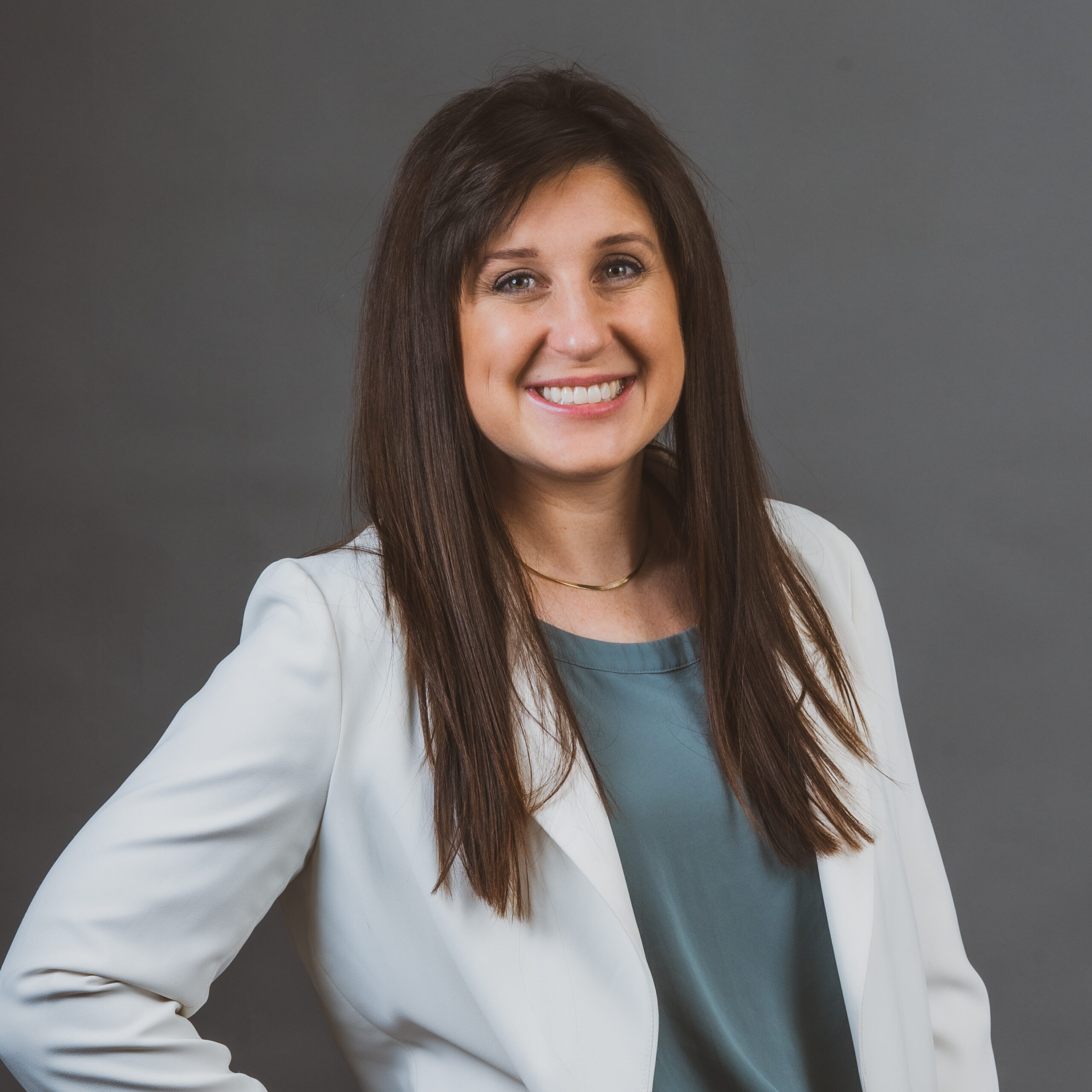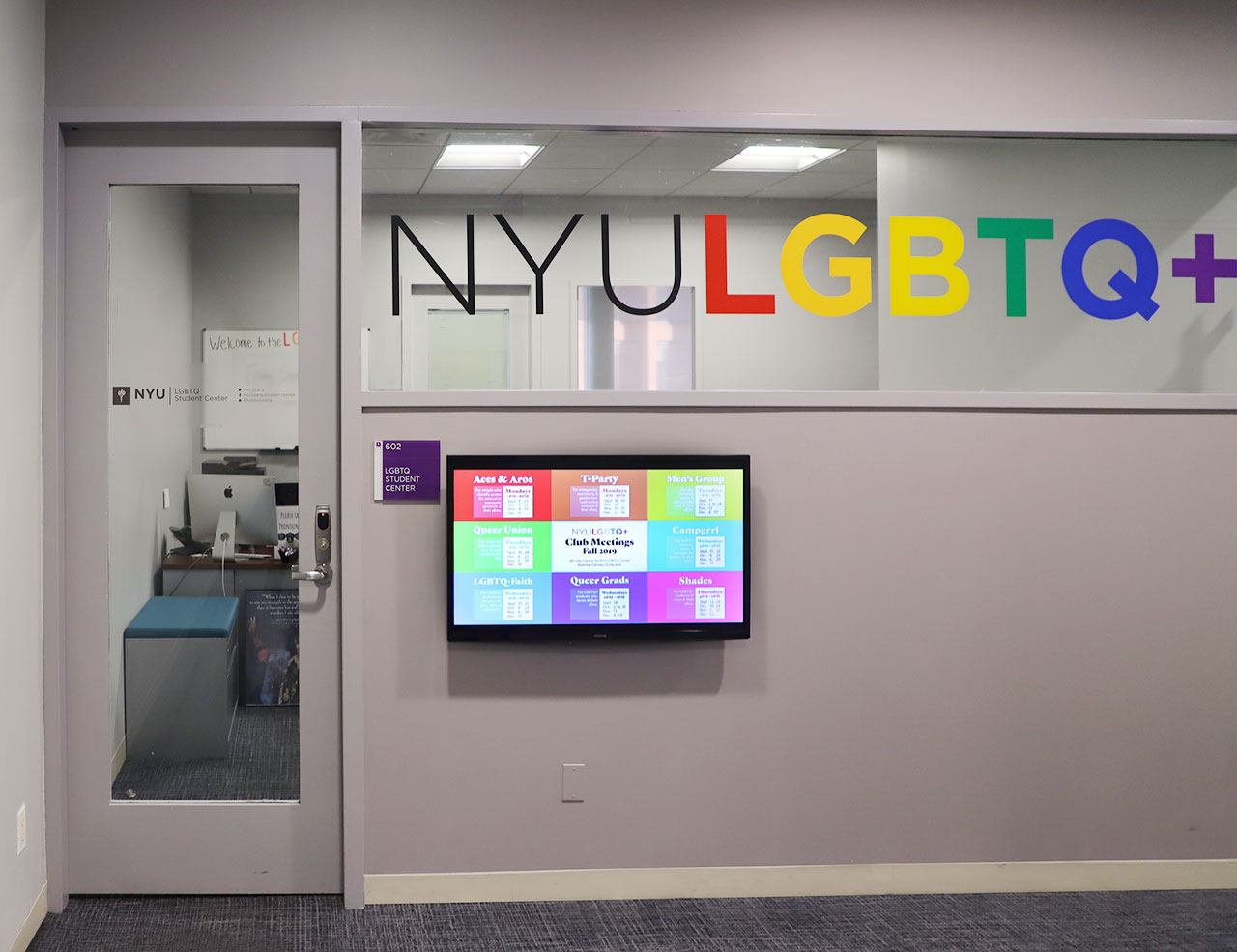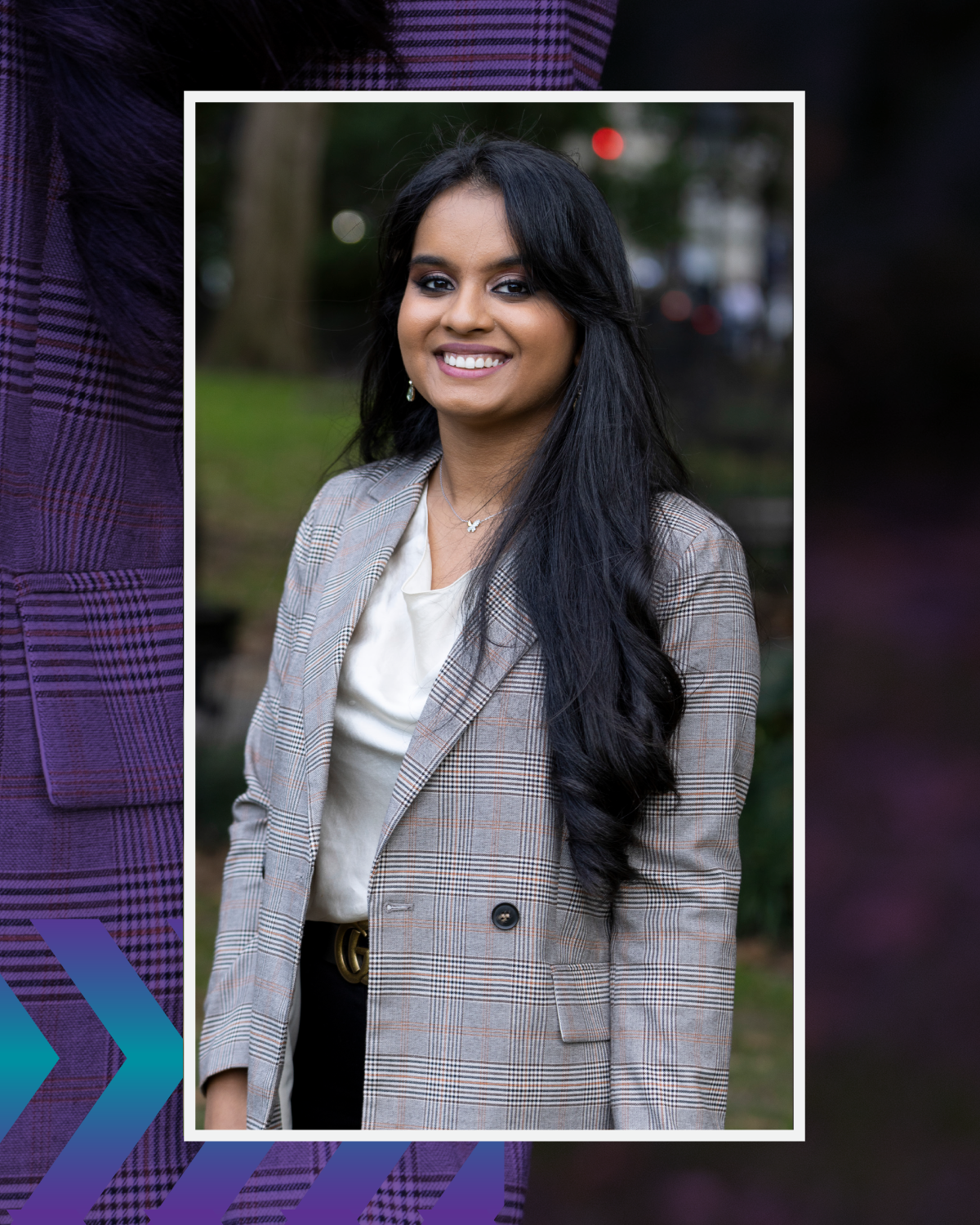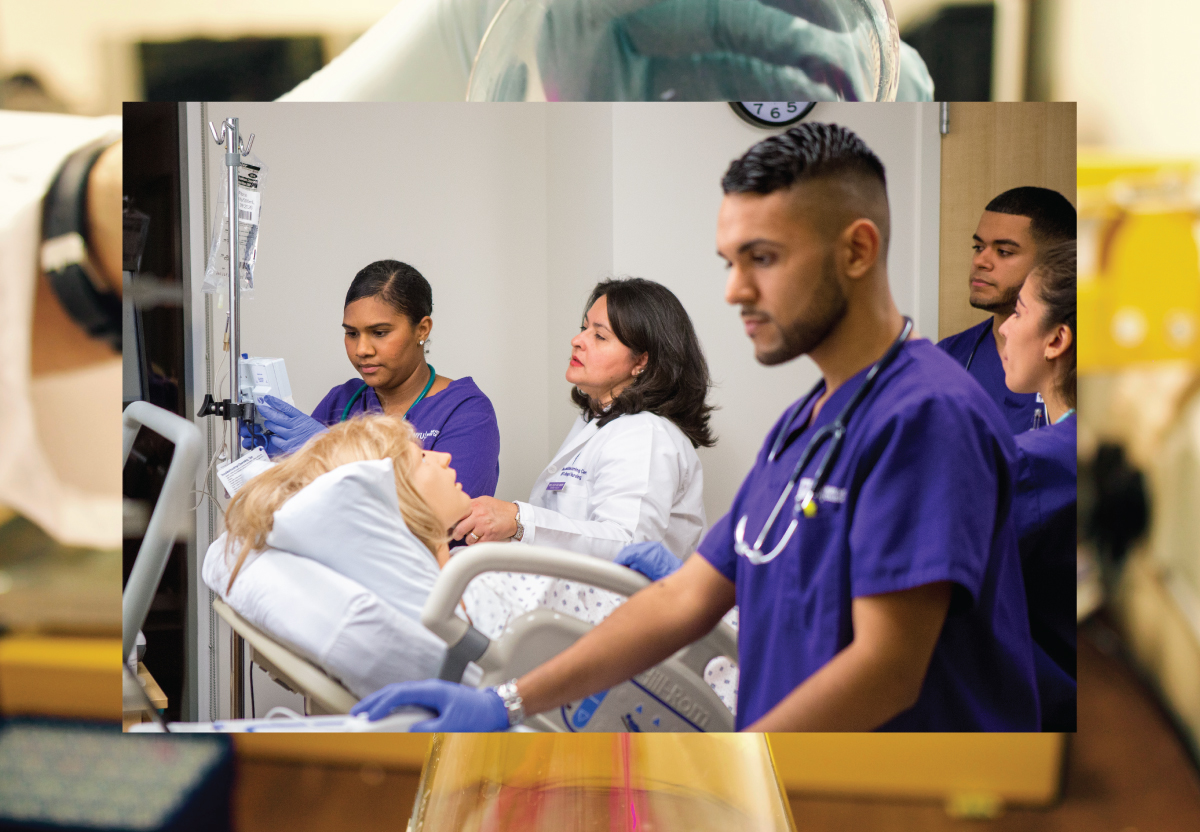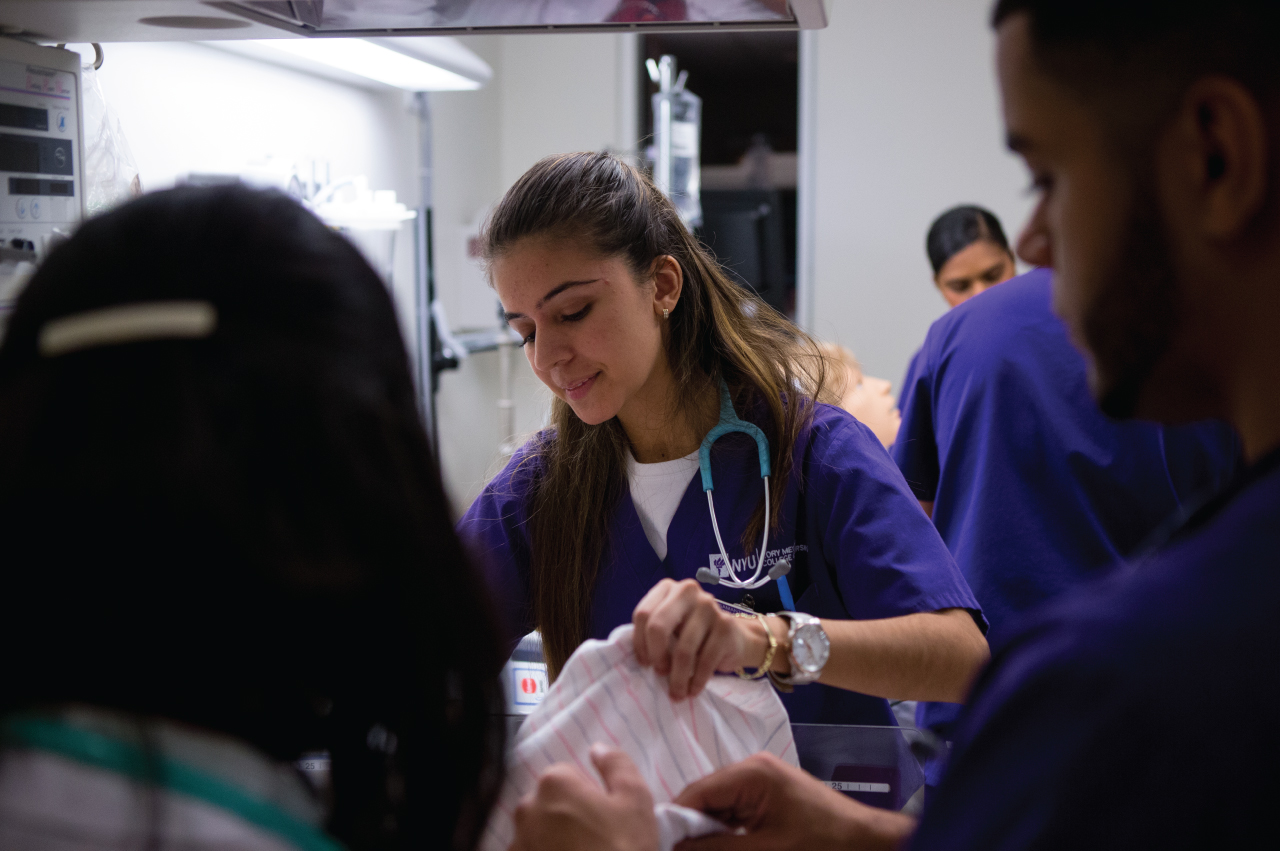
Jeff Day, a professor at the NYU Rory Meyers College of Nursing, is helping transform the LGBTQ+ patient–care experience one nursing student at a time. In his new course, LGBTQ+ Health, students dive into the history of LGBTQ+ health care. What’s more, they spend a semester unpacking their own biases and gaining knowledge that will ultimately help them provide their patients with more informed, compassionate care. “I want to turn out better nurses,” explains Professor Day. “The main goal of my course is to make sure patients have nurses who are competent, affirming, and interested in the topic.”
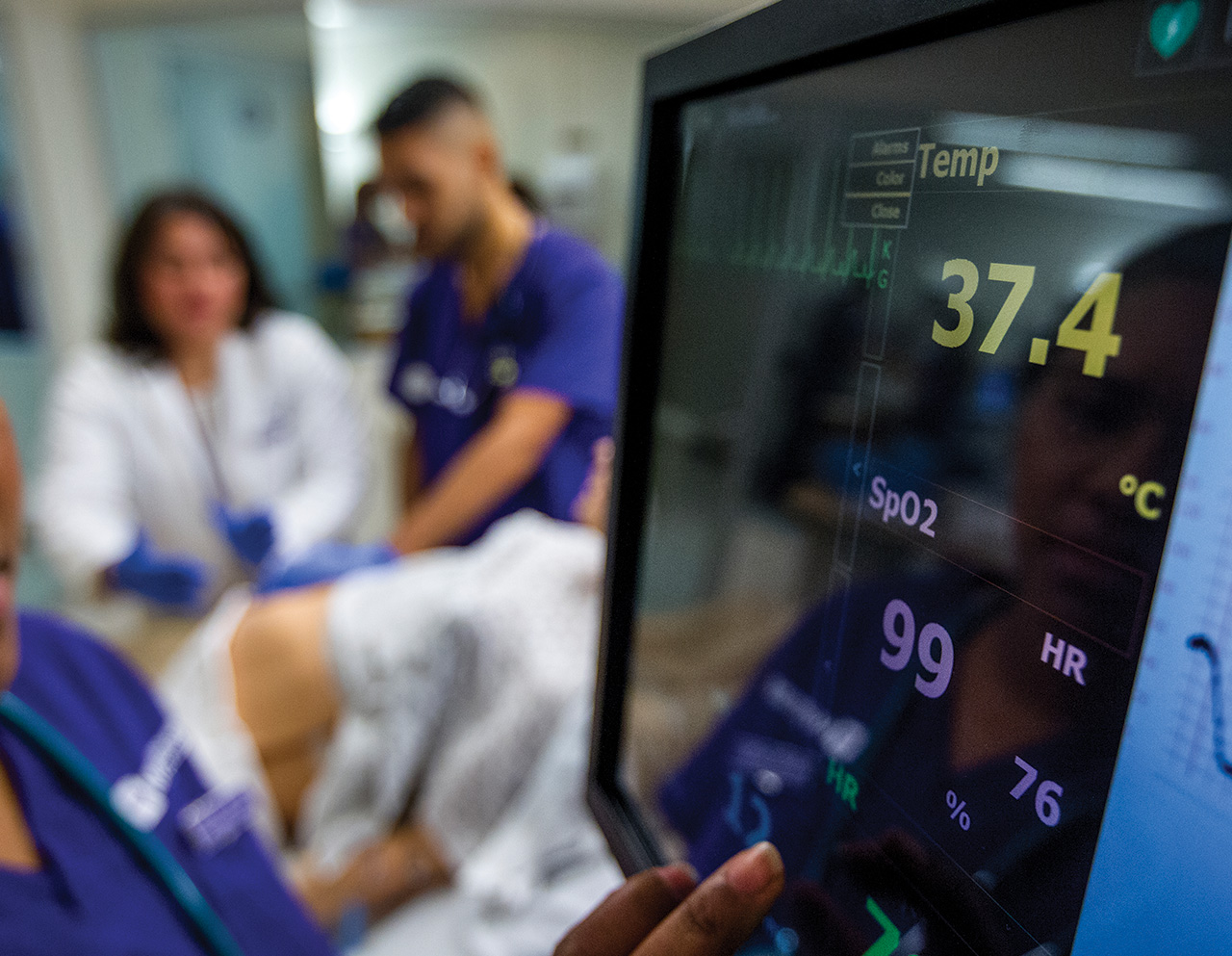
Establishing a New Standard for LGBTQ+ Health Education
An entire class dedicated to LGBTQ+ health care is a new and welcome addition to the nursing curriculum. According to Day, the average medical student spends roughly three hours learning about LGBTQ+ health–related topics. For nursing students, it’s even less. “It’s important that nursing programs implement these topics because of the substandard health care LGBTQ+ folks experienced in the past,” says Professor Day. He teaches the class in memory of his late friend, Chloe. Professor Day recalls Chloe, a trans woman, discussing the “abhorrent” health care she received in the 1990s. Ever since, he has been passionate about teaching in this space. “We need to do a better job,” he adds.
Julia Marieb, a 2022 BS in Nursing graduate, took the inaugural course during her final semester. “Two percent of the population is transgender. But you don’t learn about it in school,” says Julia. “This was the first course I took that dove into the procedures people undergo to affirm their identities and the complications that can come along with them. It focused on how to treat these patients—even if they come in with something as simple as a runny nose.”

Creating a Safe Space to Learn
While Professor Day draws from his extensive work and research in the LGBTQ+ health field, he is deliberate about providing space for his students to engage in dialogue and learn from each other. Whether they’re discussing pronouns and inclusive language or brainstorming how to best advocate for their patients, Professor Day helps guide respectful and informative conversations while offering students deeper insight into the health disparities LGBTQ+ patients often encounter.
“It was a safe space that was also educational,” says Laura McCormack, a BS in Nursing alumna. “A big focus in the beginning of the class was learning how to make everyone feel comfortable when they enter the room. Things like asking pronouns and the right way to go about that are practical skills anyone can take into general nursing.”
Expanding LGBTQ+ Health Education at NYU—and Across the Country
Since the course’s official debut last fall, colleagues at universities across the United States have sought Professor Day for advice on how to replicate it. While his LGBTQ+ Health class is one of the first of its kind, he hopes it will continue to inspire others. “It’s not a topic in every institution or health-care facility yet,” he says. “So this class gives my students the opportunity to move out into the health-care world and create their own space.”
In addition to the LGBTQ+ Health class, NYU Meyers introduced a transgender patient simulation at its Clinical Simulation Learning Center. For students, even former students like Julia and Laura who are starting their careers, these inclusive offerings make a world of difference as they prepare for their professional lives. “Doing what we can to make sure we serve the LGBTQ+ community correctly is important. Especially in nursing—which is one of the most trusted professions,” affirms Laura. “It’s important for us to make people feel comfortable when they seek health care.”
In the end, the most important lesson Professor Day hopes his students take away from his course comes down to one word: “Compassion,” he says. “Can compassion even be taught? I think it can. And if we can get students to put themselves in the position of the patients they’re caring for, it will make all the difference.”
